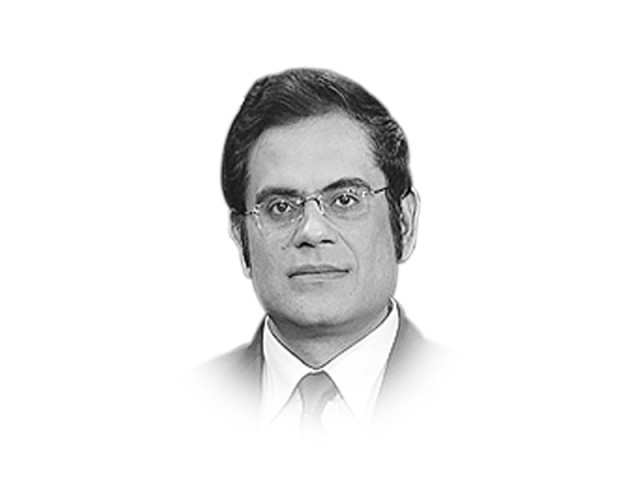Don’t expect a miracle to happen
We have gone too far and for too long. Change requires decades-long struggle to reset the country’s direction

All these measures are important and noteworthy. The ongoing Operation Zarb-e-Azb is here to stay and perhaps, is likely to be extended to other areas. But the central question is, whether these tactical moves are sufficient to tackle the hydra-headed Frankenstein’s monsters that Pakistan’s flawed national security policy has created, sustained and nurtured, sometimes with outside support and on occasions totally on its own. There is a name for this Frankenstein’s monster and it is known as jihad — a narrow, self-seeking interpretation of an otherwise lofty and ethereal religious concept. The struggle embedded in jihad — according to most scholars and not semi-literate clerics — is self-improvement. Instead, this has turned into a spectator sport where private militias carry out state objectives in the region and within the land of the pure.
This trajectory is an old one. It did not happen overnight nor was it a ploy of the Unites States and other powers to get Pakistan into a royal mess. In 1948, ‘jihadis’ from the tribal regions started with the battle of Kashmir that continues to date. Conventional wars or private ‘jihad’ efforts have brought neither glory to Pakistan nor relief for the Kashmiris, most of whom are sick of India and Pakistan treating their land and rights as national fiefs.
The trend set in 1948 continued under various forms and guises until the Afghan war of the 1980s and the ascension of a conservative general allowed for re-engineering of the state and society. Some of us grew up in that decade and witnessed first-hand how the idea of militia-led (with state sponsorship) “jihad” turned into national pride, an educational instrument and a central tenet of popular discourse. Pick up a newspaper column, a defence or security review and the central idea is that Pakistan had defeated a world power, i.e., the Soviet Union through jihad. This delusional victory has completely ignored the plight of Afghans inside and outside Pakistan, the famed heroin and Kalashnikov culture and private militias that have to be kept busy lest they consume their creator.
Concurrently, the rise of sectarian militias in Punjab and elsewhere bolstered the ‘jihad’ industry in the 1980s. Researchers have noted that the then-military regime allowed for these militias to rise and strengthen as community networks. Today, they are the veritable core of ‘jihadi’ infrastructure from Bahawalpur to Lahore and from Karachi to Quetta.
It does not matter which group or sub-group adheres to what, spares whom and kills whom: they all preach, practise and breed violence in the name of religion and sects. There was an opportunity in the 1990s under the quasi civilian regimes to do something, but they also caved in either to survive in power (the late Benazir Bhutto) or under plain fear of being attacked (the Sharif brothers).
The global war on terror complicated matters further. In view of the US invasion of neighbouring Afghanistan, Pakistan’s establishment viewed this infrastructure as an asset and when General (retd) Pervez Musharraf tried to take half-hearted measures, he also faced assassination attempts. This was also the decade when domestic ‘jihad’ networks acquired global linkages through al Qaeda and now as some reports suggest, the Islamic State is inspiring them for global action.
This is not to say that Pakistan’s military establishment is not cognisant of this reality. But former army chief General (retd) Ashfaq Parvez Kayani was averse to proceed against militants for a variety of reasons. His successor has proved to be tougher and more clear-headed. And Operation Zarb-e-Azb comes as a much-needed action by the state. How far would this go is another matter and whether it would also clean up the allied sectarian networks remains to be seen.
Has Peshawar changed things? Yes, it has galvanised public opinion and there are heroic civil society movements unfolding. There seems to be greater clarity in identifying the enemy within. At the same time, at least three major voices on mainstream electronic media are raising the India bogey and claiming that India may have orchestrated this. There can be nothing more tragic than obfuscating this moment of clarity. While the spirited crowd outside the Lal Masjid demanding action against hate and violence preaching clerics is commendable, there were huge numbers at the funerals of two terrorists recently hanged. What does that signify? In part, it demonstrates that ‘jihad’ as a concept has seeped into the national mind.
Young children read the merits of this ‘jihad’ from textbooks. Heroism in Kashmir and Afghanistan is narrated on television and through the massive ‘jihadi’ publication industry. For those who don’t read or watch TV, mosque sermons are filled with prayers to decimate infidels and interpreting the national raison d’etre as ‘jihad’ against those who want to undo Pakistan and religion. This conflation is what is at the heart of the matter.
For Pakistan to emerge out of this quagmire, its leadership — parliament and the military — will have to change the direction of the country. Other than the short- to medium-term militaristic, administrative and capacity issues, there is a larger battle to be won. And that is about redefining Pakistan. Until then, Gojras, Meena Bazaars and Data Darbars will be bombed and children in Peshawar and elsewhere will remain vulnerable to ideologies of violence.
It is highly unlikely that the quality of leadership has the intellectual or the historical vision to reverse the tide. We have gone too far and this requires a decades-long struggle to reset the country’s direction. Therefore, all those expecting miracles to happen, that time has not come.
Published in The Express Tribune, December 24th, 2014.
Like Opinion & Editorial on Facebook, follow @ETOpEd on Twitter to receive all updates on all our daily pieces.















COMMENTS
Comments are moderated and generally will be posted if they are on-topic and not abusive.
For more information, please see our Comments FAQ